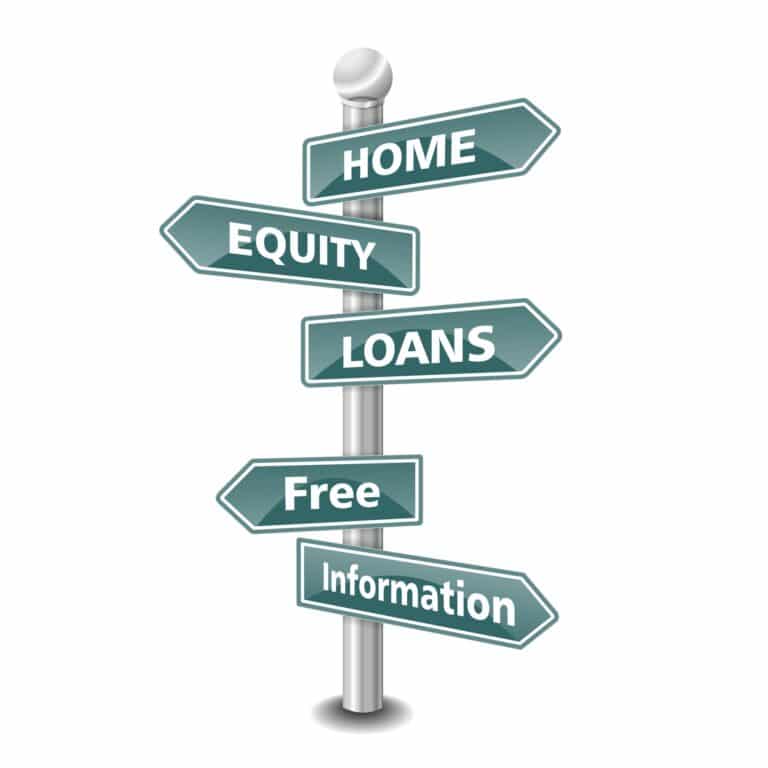
Utilize your home equity to its full potential
The amount of equity available to homeowners grows in lockstep with rising home values. However, home equity is not liquid wealth because the funds are locked up in your home. To gain access to the value of your home, you must either sell it or take out a loan against it. A cash-out refinance, for example, allows you to tap equity and refinance your existing loan, sometimes at a lower interest rate. But what if you’re content with your current loan? Another option is a home equity loan, also known as a “second mortgage,” which allows you to cash out without requiring a full refinance. Here’s what you should know.
What is a HEL of credit?
In the event that you have equity in your home, you may be eligible to take out a second mortgage known as a home equity loan. In contrast to a cash-out refinance, a home equity loan allows you to cash out without affecting your primary mortgage loan. So, if you already have a low interest rate or are nearly finished repaying the original loan, you can keep its terms. A home equity loan can also assist homeowners who own their homes outright and do not want to refinance the entire home value in order to access equity.
How do home equity loans function?
Home equity loans, like your original mortgage, are mortgages. They are secured by your home, and if you do not make your loan payments on time, you may lose your home to foreclosure. You can do the same with a “regular” mortgage. In the event that you have equity in your home, you may be eligible to take out a second mortgage known as a home equity loan. The second form of loan is a home equity line of credit (HELOC). Your monthly payments will be the same if your interest rate is fixed (which is the standard).
Interest rates on home equity loans
Because of the additional risk that these loans pose for lenders, expect higher interest rates when applying for home equity financing. Fixed home equity interest rates are about 1.5 percent higher for borrowers with excellent credit than current 15-year fixed mortgage rates. Home equity interest rates vary more than conventional first mortgage rates, and your credit score has a greater influence on the rate you pay. A difference of 80 points in FICO scores, for example, can result in a 6% difference in a home equity interest rate. Variable interest rates apply to home equity lines of credit (HELOCs). This means that your monthly payment is determined by the amount of your loan and the current interest rate. Your payment and interest rate may vary from month to month. Home equity loans can have variable interest rates, but the rate and payment are usually fixed.
Second mortgages and how they work
If you’re thinking about getting a home equity loan or a home equity line of credit, you should understand how these second mortgages’ work. One critical point is that you keep your current mortgage. You continue to make payments on it as you have in the past. The HEL or HELOC is a second, independent loan with monthly payments. As a result, you’d have two lenders and two loans to pay off.
In the eyes of lenders, second mortgages are more risky than first mortgages
If a loan defaults and the home is sold in a foreclosure, the primary mortgage lender is paid first. The second mortgage lender, which holds the HEL or HELOC, may receive less than what is owed to it. It may also not be paid at all. (A “junior lien holder” is another term for a second mortgage lender.) Because of the additional risk, home equity loans have higher interest rates than primary mortgages. A cash-out refinance may result in lower interest rates. Home equity loans are also more difficult to obtain. A home equity loan typically requires a credit score of at least 680-700, as opposed to 600-620 for a cash-out refi.
There are even more distinctions between first and second mortgages
There are a few other differences between first and second mortgages aside from the interest rate. Second mortgages include:
- Shorter loan terms
- Smaller loan amounts
- Some lenders continue to impose origination fees, while others, including HELOC lenders, absorb most or all of these costs.
- Faster processing
Home equity loan vs. cash-out refinance
Home equity loans and lines of credit aren’t the only ways to borrow against your home’s cash value.
Some homeowners prefer a cash-out refinance loan because of the following benefits:
- One loan
- Lower interest rates
- Opportunity to pay off the house early
Cash-out refinancing is not suitable for everyone. If your first mortgage is nearly paid off, for example, a second mortgage is probably a better option. If your current mortgage rate is already close to today’s rates, the savings from refinancing may not be enough to offset the closing costs and other borrowing fees. In that case, a second mortgage is most likely the best option.
Other options to home equity loans
If you recently purchased or refinanced your home, you probably don’t have enough equity to warrant a second mortgage or cash-out refinance right now. In this case, you’ll have to wait until the market value of your home rises and your original mortgage balance falls, generating enough equity to qualify for a new loan from a bank or credit union.